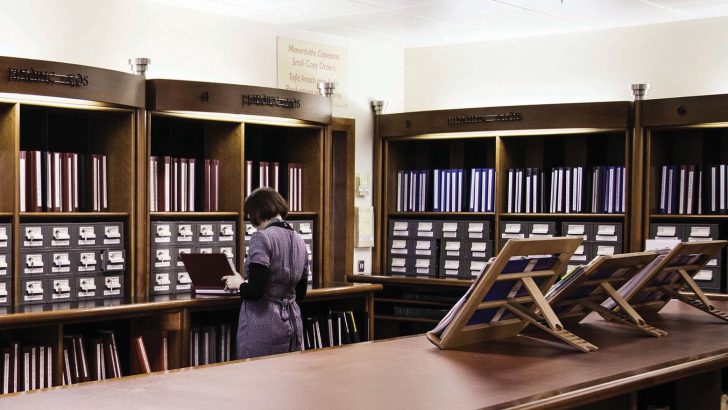At the turn of the year The Irish Catholic, along with other long-established national newspapers, has customarily devoted space to items from the year end release of state documents from 30 years ago by our National Archives in Bishop Street, Dublin.
This usually ran to a mini-supplement of six pages. But this year, because of the pandemic and restriction on the opening of libraries and other institutions, this proved impossible.
In the past, members of the press were allowed five days access early in December to the files directly. This year, however, the staff scanned a mere 100 files which they deemed would be of greatest interest to the ‘newspapers of record’.
This sounds like a lot of files, but in fact was a mere fraction of the thousands what would normally be available. In any case, in dealing with an ordinary year’s release The Irish Catholic decided on another approach.
Politics
Realising that the other national papers would concentrate on politics – usually files on the northern and southern governments and files that could present embarrassing revelations about politicians still around or of recent memory – The Irish Catholic took a different path, reflecting the special social and historical focus of this paper.
Our interest was, for instance, on the foreign affairs files covering relation with the Holy See, which, depending on the individual Irish ambassador at the Vatican, could be very revealing, and often as embarrassing anything to be derived from Upper Merrion Street.
But, we also had a different view on social matters. A couple of years ago, for instance, there was a major release of the files from the old inter-war Aliens Office. These, from our point of view, were full of fascinating material, and will be worthy of investigation at PhD level. Many dealt with Jewish refugees, some passing through on their way to the US, others wishing to live here where they had relatives. These were ignored by the rest of the journalists.
Stories
The aim of present-day journalists is to find the stories they would have liked to have reported at the time, but never got on the trail of.
The press are explicitly asked by the National Archives to record the numbers of the files their articles were based on. This The Irish Catholic was very careful to do: it enabled readers of these articles to go in and peruse the files directly themselves. Yet, we were the only paper or media outlet to do so. The rest ignored the instruction, intended by the National Archives as an aid to researchers. But as I say, the purpose of the press was to find scandal, not to write ‘the first draft of history’.
If this year, printing deadlines prevented us presenting our usual articles.
The recent months have been filled with archival interest. This month, for instance, we learned of the difficulties of the staff at the White House to retain papers from the president’s office. Former president Donald Trump did not believe in filing or preserving documents at all. He would tear them up as he dealt with them, and the staff had to retrieve the scraps from the bin and tape them together. Nevertheless, photo coverage in his administration’s last hours showed boxes being removed by vans, going where is not known. We cannot assume they were to be preserved.
(Back on November 2, The New Yorker reported on the auction sale of a Bible signed by Mr Trump – not the one that featured in the incident outside St John’s Church though.)
Correspondence
The dealer, Bill Panagopulos, told the magazine there was very little official presidential correspondence signed by Mr Trump in the market. “He doesn’t seem to send any messages at all,” Mr Panagopulos said.
Here in Ireland, however, we have seen with the mother and baby home report just how vital archives are in preserving past events for re-examination, to bring about just resolutions.
Yet, politicians do not always agree with preservation. They too would remove materials from their offices to their homes. I say materials, because the term covers such things as the Russian crown jewels, State property which the Boland family retained for decades, about which we wrote a revealing article.
The papers might sometime later be passed to University College Dublin (UCD) or other archives; Éamon de Valera’s went originally to the Franciscans in Killarney, Co. Kerry – we do not know what was destroyed. The politicians were editing the historical first draft in their favour.
The real importance of archives is not for us today, but for the citizens of the future who wish to hold us to account. Archives are important: too important to be left to the mercy of departmental secretaries or government ministers.
Currently an extensive enlargement of the premises in Bishop Street is underway, but much more needs to be done to preserve our past. That means more money, more staff, and more controlling legislation.
The National Archives strive to do the very best they can, but it is difficult. For instance, few people seem to know that the National Archives will also accept and preserve the archives of large and small businesses: records from which our economic and social history can be written, the true history of Ireland in the eyes of many historians.
But, as often as not they just end up in a skip on Merrion Square or Angelsey Street, following in that way many records of Mr Trump’s time in power.


 Peter Costello
Peter Costello Part of the national archives in Dublin.
Part of the national archives in Dublin. 